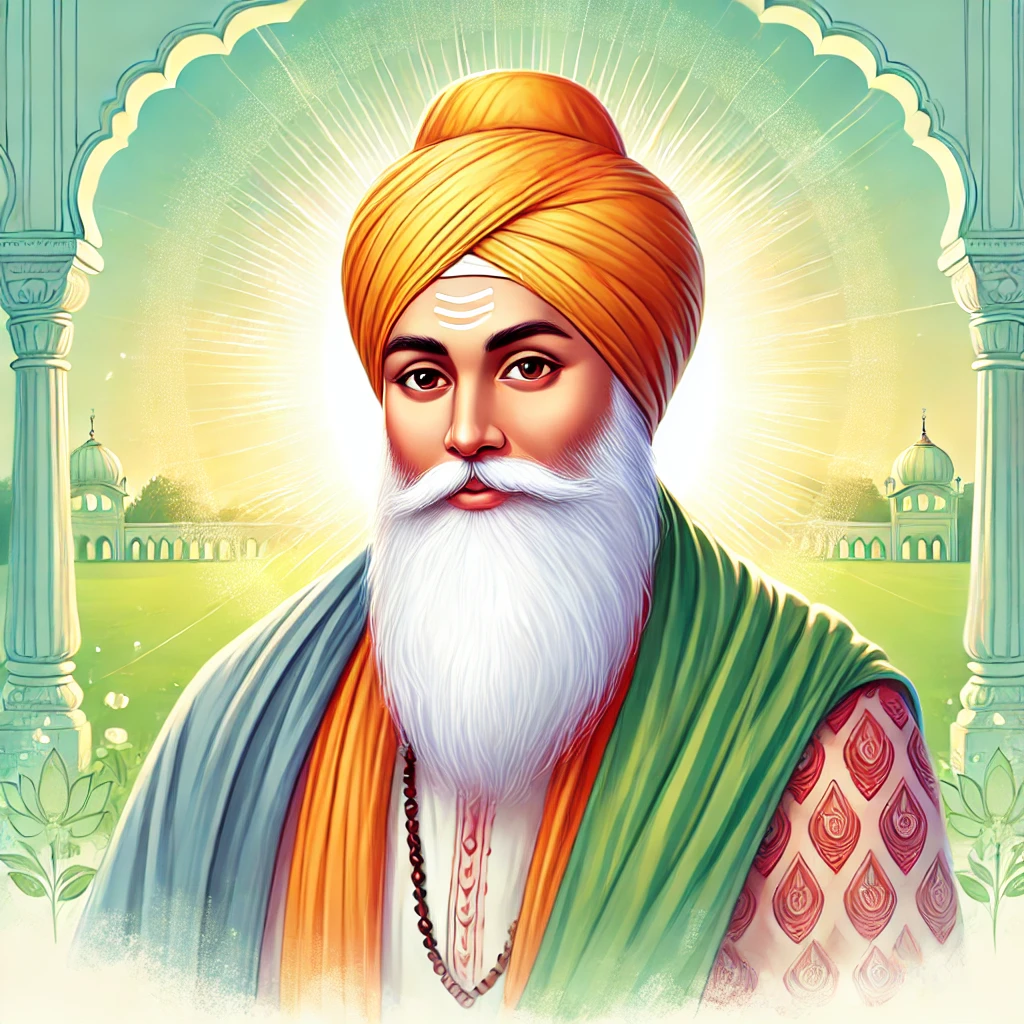
Exploring Osho’s “Ek Onkar Satnam”: A Journey into Spiritual Unity and Inner Truth
The phrase Ek Onkar Satnam holds deep significance in Sikhism, serving as the foundational concept of Guru Nanak’s teachings and Sikh spirituality. Derived from the opening verse of the Guru Granth Sahib (the holy scripture of Sikhism), Ek Onkar Satnam can be broken down as follows:
Ek: Meaning “one,” it symbolizes the concept of a singular, indivisible divine presence that is the origin of all existence.
Onkar: Combining “Om” (a sacred sound) and “Kar” (meaning “creator” or “doer”), this part refers to the formless, eternal creator. Onkar implies a divine force that is both immanent and transcendent, beyond physical or anthropomorphic definitions.
Satnam: Translating to “True Name,” Satnam represents the eternal truth or essence of God. Here, “Sat” means “truth,” and “Nam” means “name,” suggesting that the ultimate name or identity of the divine is “Truth.”

Here’s how various perspectives and interpretations have defined Ek Onkar Satnam:
1. Traditional Sikh Interpretation
Sikhs regard Ek Onkar Satnam as the core of their belief system, affirming that there is only one universal God who is beyond form, caste, and creed. This divine presence is not limited to one religion or group but is accessible to all. Ek Onkar Satnam emphasizes that God is truth, and that truth is eternal and unchanging. This phrase is a reminder of humility, unity, and equality among all beings.
2. Philosophical and Metaphysical View
Some scholars view Ek Onkar Satnam as a statement on the unity of existence and the interconnectedness of all life. It suggests that beneath the diversity of forms, identities, and experiences, there is a singular, unifying essence. This interpretation aligns with non-dual philosophies that see the material world as an expression of the divine and believe that realizing this oneness brings inner peace and fulfillment.
3. Spiritual and Mystical Understanding
Mystics and spiritual seekers interpret Ek Onkar Satnam as an invitation to experience God within oneself, beyond the confines of organized religion. For them, this phrase is a call to move beyond intellectual beliefs to an experiential awareness of divine oneness. The “True Name” (Satnam) represents an inner state of truth that can be discovered through meditation and self-realization.
4. Universalist and Interfaith Perspective
Some universalists see Ek Onkar Satnam as a message of inclusivity and universal love, transcending boundaries between religions and cultures. This perspective sees Guru Nanak’s teaching as one that calls for unity and respect across humanity. The phrase emphasizes that all paths ultimately lead to the same truth, encouraging compassion and understanding among diverse faiths.
5. Psychological and Self-Reflective Approach
From a psychological perspective, Ek Onkar Satnam can be seen as a reminder to align oneself with truth and integrity. It implies living authentically and cultivating inner truthfulness. This approach suggests that each individual has the divine within and that by being honest and true to oneself, one can live in harmony with the universe.
6. Comparative Religious Interpretation
In comparative religion studies, Ek Onkar Satnam is often discussed alongside similar concepts from other faiths, such as the Islamic concept of Tawhid (oneness of God), the Christian Trinity’s unified essence, and the Hindu Advaita (non-duality). Scholars draw parallels between these traditions, highlighting the concept of a single, omnipresent truth as a common spiritual thread across religions.
Osho, a renowned spiritual teacher, often ventured into unconventional paths to help individuals seek the truth beyond societal constraints. In his book Ek Onkar Satnam, Osho delves into the profound wisdom of Sikh philosophy, particularly focusing on the essence of Guru Nanak’s teachings. Through this work, Osho reflects on the first line of the Guru Granth Sahib, “Ek Onkar Satnam,” which translates to “One God, His name is the Truth.” The book goes beyond religious interpretation to invite readers into a deeper understanding of unity, truth, and self-awareness.
Understanding "Ek Onkar Satnam"
Osho begins by unpacking the powerful concept of “Ek Onkar”—the belief in one universal existence or God. According to Osho, this idea of a singular divine presence transcends all religious boundaries and labels, pointing toward a unified reality that embraces all life. Osho emphasizes that true spirituality is inclusive, encouraging readers to move beyond sectarian beliefs and experience the oneness that Guru Nanak envisioned. For Osho, Ek Onkar is not merely a concept but an invitation to transcend divisions and connect with the divine that exists in everyone and everything.

Join the Dialogue
Unlock Your Potential: Dive into Osho's Insights
01
Engage with Community
Participate in vibrant discussions and make meaningful connections with individuals who are on a similar quest for truth.
02
Access Resources
Discover a wealth of educational materials designed to deepen your understanding of Osho's principles and the philosophy behind Ek Onkar Satnam.
03
Enhance Your Learning
Engage with curated videos and articles that inspire personal growth and reflection on Osho's transformative teachings.
The Meaning of Satnam: Truth as the Essence of Being
Osho also explores the term “Satnam,” which represents the essence of truth. According to him, truth is not something external but is embedded within each individual. The search for “Satnam,” or the ultimate truth, becomes a journey inward, one that transcends rituals and dogma. Osho encourages readers to recognize that truth is not something to be believed but something to be realized through experience. In Ek Onkar Satnam, he stresses that understanding this truth involves peeling away the layers of ego and conditioning, allowing the seeker to discover their authentic self.
Analysis: Breaking Free from Dogma and Rituals
One of the core themes in Osho’s interpretation is the idea of moving beyond the constraints of organized religion. He discusses how rituals, while intended to be tools for spiritual growth, often become barriers. Osho suggests that blindly following rituals without understanding their deeper meaning can trap individuals in superficial practices. For him, the teachings of Guru Nanak, especially as embodied in “Ek Onkar Satnam,” are an invitation to transcend religious identity and seek an inner connection with the divine, free from dogmatic restrictions.
Osho’s perspective challenges readers to examine their beliefs critically and question the societal norms that dictate their understanding of God and spirituality. This approach aligns with his broader philosophy that true spirituality is a personal journey rather than adherence to a specific religion or doctrine.
The Path to Self-Realization
In Ek Onkar Satnam, Osho emphasizes self-realization as the ultimate goal of spiritual practice. He draws from Guru Nanak’s teachings to highlight that realizing the “one truth” is a journey of self-discovery and self-acceptance. This journey requires one to meditate, introspect, and go beyond the mind to experience a deeper reality. According to Osho, Ek Onkar Satnam is a call to awaken, urging seekers to connect with their own inner truth, where true peace and unity reside.
Conclusion: A Guide to Universal Oneness and Inner Peace
Ek Onkar Satnam is more than a commentary on Sikh philosophy; it is a guide to understanding and living the truth that transcends labels, rituals, and identities. Osho’s insights encourage readers to embark on a journey that does not stop at religious texts or external practices but leads inward, to the truth within. In a world often divided by beliefs, Osho’s interpretation of “Ek Onkar Satnam” serves as a reminder of our shared spiritual essence and the peace that comes from recognizing the divine in all.
This book is a valuable resource for anyone seeking a deeper understanding of spirituality, unity, and the essence of truth. Through Ek Onkar Satnam, Osho offers a timeless message: spirituality is about discovering the oneness of existence and embracing the truth within ourselves.

https://shorturl.at/3R7Q8


Core Philosophy
Delve into the Wisdom of Ek Onkar Satnam

Explore the depth of teachings from Osho as ‘Ek Onkar Satnam’ reveals our oneness with the cosmos. Uncover how this sacred mantra bridges divides, paving the way for unity and truth.
Unity of All
Feel the interconnectedness among all entities, fostering a shared existence.
Essence of Truth
Unlock the transformative potential that arises from discovering your inner truth.


Osho educational philosophy

Education and Personal Development: The Pathway to a Fulfilling Life

Breaking Chains: Osho’s Vision of Spirituality Beyond Guilt and Repression

ओशो के दृष्टिकोण में भाषा और धर्म का संबंध

Exploring the Highlights of ‘Jeevan Ki Khoj’ by Osho

AI and Consciousness and Awareness

Understanding Osho’s Perspective on Govardhan Puja

The Silent Cry of Our Parks: A Plea for Attention

psychedelics and spirituality

Family evolution : From Joint Families to Nuclear Units

Over 80 years old

Intermittent Fasting for Seniors

Can animals Commit Suicide?

Navratri: A Seasonal Transition and Its Significance
8 Types of Intermittent Fasting

Autophagy Fast : Its Benefits and how to achieve

